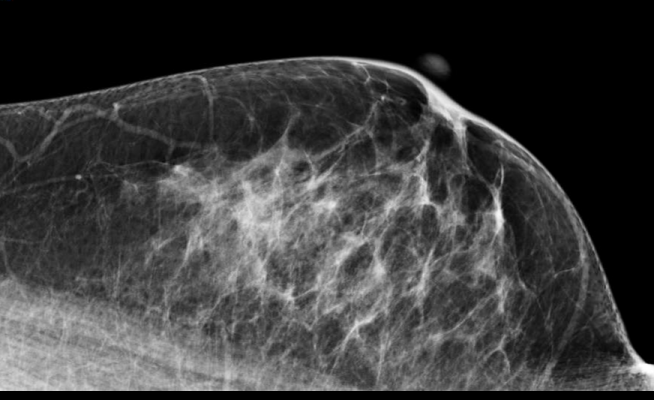
November 9, 2016 — The recall rate of screening mammography is reduced when radiologists compare with more than one prior mammogram, a study published in the October 2016 issue of the American Journal of Roentgenology said.
"Our findings suggest that radiologists who make comparisons with more than one prior examination at screening mammography will have more true-positive outcomes and fewer false-positive outcomes," said study co-author Kimberly M. Ray, a radiologist with the Department of Radiology and Biomedical Imagining, University of California, San Francisco (UCSF). Ray is among several authors who published the paper, "Improving Screening Mammography Outcomes Through Comparison With Multiple Prior Mammograms."
"We have shown that the recall rate (percentage of cases with a potential abnormality that require additional imaging evaluation) for screening mammography decreases, whereas the positive predictive value of recall (PPV1) and the cancer detection rate increase when two or more prior examinations are used for comparison relative to comparison with a single prior examination," Ray said.
A large body of evidence indicates that screening mammography reduces the breast cancer mortality rate among women 40 years and older by approximately 20-40 percent. However, false-positives are frequently cited as the downside to mammographic screening because they cause patient anxiety, additional radiation exposure, biopsies and increased healthcare costs. The U.S. Preventive Services Task Force cited excessive false-positive results as a reason to avoid routine screening of women in their 40s and to recommend less frequent screening among older women.
"Consequently, although the reduced mortality rate associated with screening mammography arguably far outweighs the potential harms of the examination, a reduction in false-positive results should be a priority to ensure that support for and access to screening mammography are maintained," Ray said. "Because millions of women undergo screening mammography each year in the United States, even a small reduction in the recall rate may result in a widespread benefit."
Study authors retrospectively analyzed 46,288 consecutive screening mammograms performed at UCSF for 22,792 women. The examinations were divided into three groups: those interpreted without comparison with prior mammograms, those interpreted in comparison with one prior examination, and those interpreted in comparison with two or more prior examinations.
The recall rate for mammograms interpreted without comparison to prior examinations was 16.6 percent, whereas that for mammograms compared to one prior examination was 7.8 percent, and that for mammograms compared to two or more prior examinations was 6.3 percent.
For more information: www.ajronline.org


 February 18, 2026
February 18, 2026 









